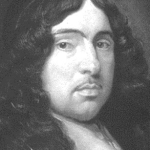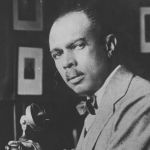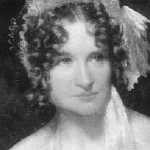My mind was once the true survey
Of all these meadows fresh and gay,
And in the greenness of the grass
Did see its hopes as in a glass;
When Juliana came, and she
What I do to the grass, does to my thoughts and me.
But these, while I with sorrow pine,
Grew more luxuriant still and fine,
That not one blade of grass you spy’d
But had a flower on either side;
When Juliana came, and she
What I do to the grass, does to my thoughts and me.
Unthankful meadows, could you so
A fellowship so true forgo?
And in your gaudy May-games meet
While I lay trodden under feet?
When Juliana came, and she
What I do to the grass, does to my thoughts and me.
But what you in compassion ought,
Shall now by my revenge be wrought;
And flow’rs, and grass, and I and all,
Will in one common ruin fall.
For Juliana comes, and she
What I do to the grass, does to my thoughts and me.
And thus, ye meadows, which have been
Companions of my thoughts more green,
Shall now the heraldry become
With which I shall adorn my tomb;
For Juliana comes, and she
What I do to the grass, does to my thoughts and me.



















Comment form: